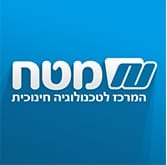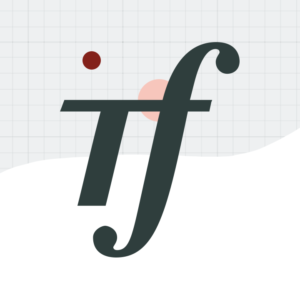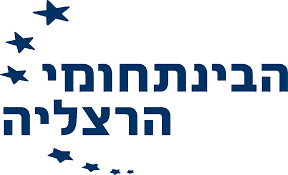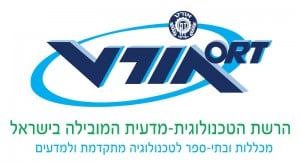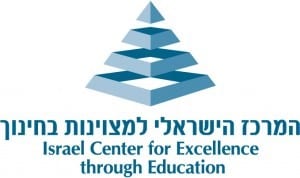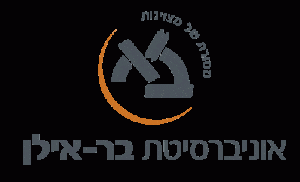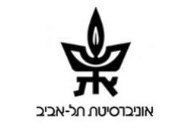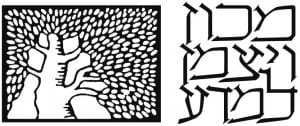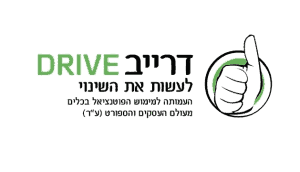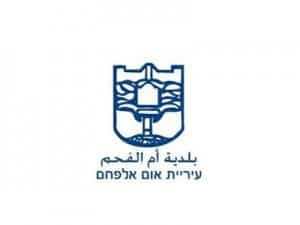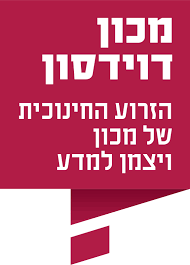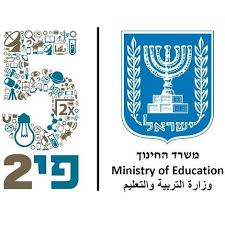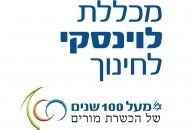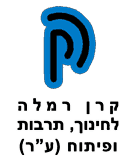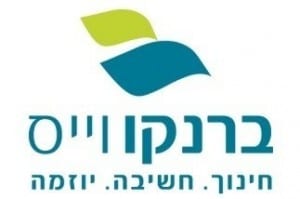At the core of the international PISA tests are skill and proficiency-based tasks that reflect real-life challenges. The mathematics test invites 15 year-old students to use mathematics reasoning as well as quantitative thinking in order to solve daily life problems. Contexts vary from determining accurate dosage of antibiotic drugs, calculating the levels of energy needed […]
Student selection of five-unit mathematics in high school has become more straightforward in recent years. The motivation is practical, as it provides students with a ‘golden key’ to enter prestigious technology units in the army, competitive departments in universities, and high paying jobs in the labor market later on. Students receive individual matriculation grades, which […]
Over the past four years, we have been gradually collaborating with municipalities across Israel that prioritize the advancement of mathematics and science studies in high school. We chose to work with cities, because in Israel they are directly responsible for high schools, hiring their personnel and allocating their budget. We have joined their effort to […]
The traditional approach in teaching mathematics and science in Israeli high schools has been exclusive and selective. Teachers tended to focus on teaching the material in depth and at pace, while relying on the students to self-regulate their effort. In practice, the first months of tenth grade and the first matriculation of eleventh grade, served […]
“Mathematics First”, the National program for increasing the number of 5-unit graduates began in 2015 in a rush – it was launched after the beginning of the school year and quickly recruited 100 schools to the program. Together with the Education Ministry, we approached the Center for Educational Technology (CET) and asked them to reach […]
The ‘collective impact’ coalition around excellence in mathematics and the sciences is acknowledged as an important element in the national effort to increase five-unit graduation rates in high school in Israel. The convening of dozens of stakeholders from government, industry, academia and the civil sector to jointly focus on a shared mission has had a […]
The foundation is currently collaborating with five school networks (ORT, Amit, Darca, Amal and Branco Weiss), in order to increase the number of five units graduates in mathematics. Among these, ORT is the largest network with 100,000 students in 205 educational institutions throughout the country, 90% of which are located in the social periphery. A […]
In the past, most professional development for teachers in Israel has taken place in off-campus institutions, delivered by external experts, disconnected from daily school life and challenges. However, in recent years, following best practice of high performing education systems around the world, there is a growing tendency in Israel to encourage in-school peer-to-peer professional development. […]
Clinical professions develop from within practice, through documentation and joint analysis by the practitioners. To encourage such collaboration between teachers of mathematics and the sciences, the Trump Foundation is supporting the development of routine student-centered professional learning communities (PLCs). These communities are now spreading all over the country, mostly on a regional basis, gathering teachers […]
The basic assumption of someone who believes in public education is that excellence knows no boundaries. In Israel in particular, excellence in mathematics and the sciences holds a promise for social mobility. Today, with the growing number of five unit students across the country, it is encouraging to see the relative growth in remote areas. […]
OECD studies revealed that Israeli students believe that talent is the best predictor for success in mathematics studies at school, in contrast to Korean students who pointed to effort as the primary factor. In conversations we held with teachers in Israel’s social periphery, we found out that especially there, the Israeli way of thinking might […]
In the past few years, municipalities across the country have joined the national program of doubling the number of 5-unit graduates. Fourteen of them decided to respond to this opportunity and create deeper professional infrastructure around the five-unit goal. To do so, we created a joint program with each of them in order to nurture […]
Several months ago, the foundation approved a unique pilot venture with the goal of exposing 15-year-old students to skills-based proficiency tasks in mathematics. The intention is that the tasks will be aligned with those of the PISA examinations, which will take place in March 2018. Presentense, a nonprofit organization, encouraging grass root social initiatives across […]
Over the past few years, we have gradually begun working at the junior high school level, in order to help more students prepare for the advanced five-unit tracks. Currently, approximately 40% of the foundation’s portfolio is dedicated to helping high schools to smooth the transition from junior high to senior high school. However, we have […]
In order to help more students prepare for the advanced five-unit levels, we have gradually begun working at the junior high school level. However, we have learned that there seems to be no clear motivation for junior high school students to invest and excel in studying mathematics and the sciences at advanced level. At the […]
In 2014, the foundation approved a Weizmann Institute program for the development and implementation of 45 diagnostic assignments covering the 10th grade curriculum of the advanced 5-unit track. The assignments are presented to the teachers in kits that include the task itself, a detailed indicator for analyzing student answers, and suggestions for follow-up tasks for […]
“Mathematics First”, the national program for increasing the number of 5-unit graduates began in 2015 with a sense of immediacy – it was launched after the beginning of the school year and quickly recruited 100 schools to the program. Together with the Ministry of Education and the Centre for Educational Technology (CET), the foundation launched […]
In Israel’s social periphery, where the average rate of 5-unit students is below the national average, significant gaps in student knowledge and skill have developed. When these gaps are coupled with fixed mindsets, success in 5-unit mathematics sometimes seems a far-off, even unattainable goal. We noticed through our interactions across the country, that students and […]
Kiryat Malachi is a small city in the Southern District of Israel, with a population of approximately 22,000. It was created as a development town, absorbing mostly Jewish immigrants who arrived from Iraq and North Africa during the early days of the State. In recent years it has also become home to new immigrants from Ethiopia (who […]
Four years ago, when the foundation established “It’s time for education,” its activity on social networks was built as an independent activity separate from the foundation in its familiar format. We sought to establish a young, vibrant and energetic community of friends, thereby increasing interest in teaching mathematics and science as a profession, and further […]
Six years in to our mission to expand the circle of excellence among high school mathematics students, it is clearer than ever that success in advanced level mathematics is dependent on much more than just talent or a natural ability. Students and their teachers must be determined, and motivated for hard work; they need to […]
Umm al-Fahem is an Arab city in the North of Israel, with a population of 52,500. Umm al-Fahem is the social, cultural and economic center for residents of the Wadi Ara and Triangle regions, and home to over 9,000 students. There are six high schools – one of which is a science high school operated by the Atid […]
The percentage of five-unit mathematics graduates in schools in Israel’s Arab sector is low in comparison with their counterparts in the Jewish sector. There are a number of predictors for this; for example, in PISA tests conducted at age 15, the rate of Arab students who excel in mathematics is less than 1%. This, and […]
Eilat is Israel‘s southernmost city, a busy port and popular resort at the northern tip of the Red Sea. The city is a popular destination for domestic and international tourism, and is home to 50,000 people, including approximately 10,000 work immigrants. The educational system of Eilat accommodates more than 9,000 youngsters including 67 kindergartens, 10 elementary schools, and 6 high schools. Of the 535 […]
Kiryat Gat is a city in the Southern District of Israel, it lies 50 km south of Tel Aviv, and has a population of approximately 52,000. Primarily Jewish, the city has a level 4 socio-economic ranking (out of 10), and around one third of its residents hail from the former Soviet Union. It has seven secondary schools, three of which […]
The collective impact coalition, “5p2”, comprised of 80 member organizations, including hi-tech companies, academic institutions and the IDF, has succeeded over the last three years, in organizing a national effort to raise the number of five-unit high school graduates in mathematics. The government joined in to lead the national goal of doubling the number of […]
At the recommendation of the Advisory Council, the foundation decided to deepen the professional discourse in Israel surrounding quality teaching of mathematics and the sciences. Based on the collective wisdom of teachers, which we gathered from practice and research, we constructed a ‘compass for quality teaching’, which is an ambitious attempt to curate an ideal […]
Ramla is a disadvantaged city in the central district of Israel with a population of almost 66,000 residents. The city is predominantly Jewish with a significant Arab minority, and is home to a large population of new immigrants from the former Soviet Union. The fabric of its residents is reflected in the city’s education system, which is somewhat fragmented; […]
Over the past five years, the foundation has formed partnerships with ten cities (Ashdod, Haifa, Ra’anana, Bat Yam, Sachnin, Herzliya and Rishon Lezion, Petach Tikva and Be’er Sheva, and Nazareth) in order to increase the percentage of 5-Unit mathematics and physics matriculation graduates. The municipal programs focus on the growth of clinical teaching, and work […]
The Central District, one of eight districts of the Education Ministry, serves 320,000 students in 56 cities and is responsible for 132 high schools. In 2013, 15% of 12th grade students (2,120 students) took the advanced five-unit mathematics exam and 28% (3,950 students) took the four-unit exam. The district supervisor learned that 44% of their […]

